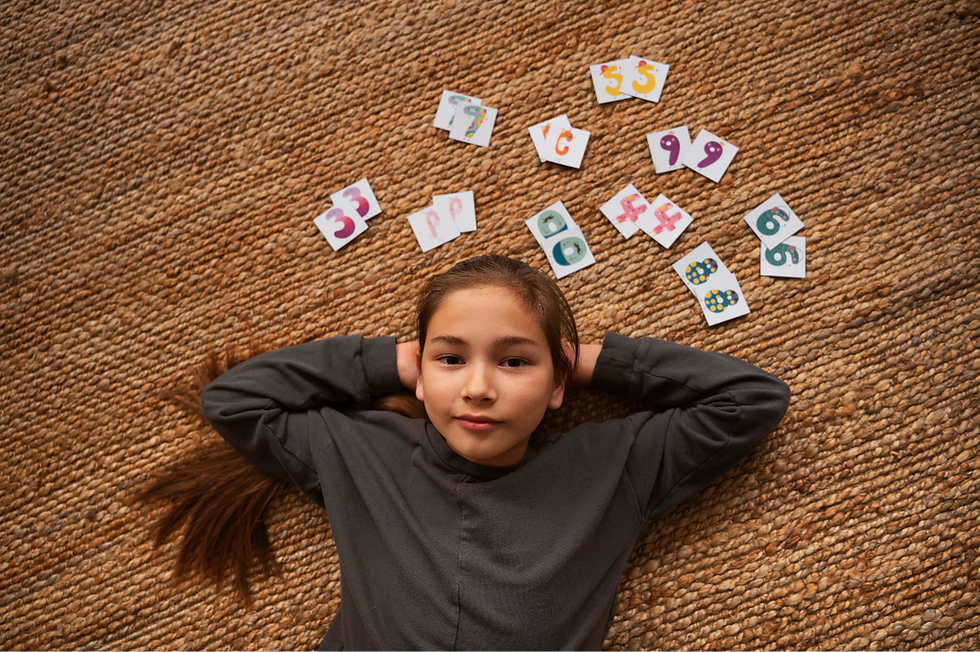Early ADHD Signs in Children and How to Support Their Growth
- Moe Orabi
- Aug 12
- 4 min read

All children can be energetic, impulsive, and easily distracted at times — it’s part of normal development. But for some, these traits are more frequent, intense, and persistent, signaling something more than typical childhood behavior.
That “something” could be Attention-Deficit/Hyperactivity Disorder (ADHD), a neurodevelopmental condition that affects a child’s ability to focus, control impulses, and regulate energy levels.
At Joseph Mental Health Services LLC, we believe that recognizing the signs of ADHD early is crucial. Early identification allows families, educators, and healthcare providers to put supports in place that can make a lifelong difference in academic success, emotional well-being, and social relationships.
This guide will help you:
Identify early ADHD signs in children
Understand how ADHD affects different areas of development
Learn strategies to support children both at home and in school
Explore how professional help can guide a child toward their full potential
Page Contents:
What Is ADHD?
ADHD is a brain-based condition characterized by differences in brain development and activity that affect attention, self-control, and energy regulation. The condition typically appears in early childhood, though diagnosis can occur at any age.
The three main presentations of ADHD are:
Predominantly Inattentive: Difficulty sustaining focus, following instructions, and organizing tasks
Predominantly Hyperactive-Impulsive: Excessive movement, restlessness, and impulsive actions
Combined Presentation: A mix of inattentive and hyperactive-impulsive symptoms
Early Signs of ADHD in Children
1. Persistent Inattention
Trouble following multi-step directions
Difficulty completing homework or chores without frequent reminders
Losing items (toys, school supplies, clothing) regularly
Easily distracted by noises, movements, or unrelated thoughts
2. Hyperactivity
Constantly moving, even in situations that require sitting still
Running, climbing, or jumping at inappropriate times
Difficulty engaging in quiet play or activities
3. Impulsivity
Interrupting conversations or activities
Difficulty waiting their turn during games or group activities
Blurting out answers before questions are finished
How ADHD Affects Development
Academic Skills
Without support, inattention can lead to missed instructions, incomplete assignments, and frustration in the classroom.
Emotional Regulation
Children with ADHD may experience intense emotions and struggle to calm down after becoming upset or excited.
Social Relationships
Impulsivity can lead to conflicts with peers, while distractibility may cause missed social cues.
Self-Esteem
Repeated negative feedback from teachers, peers, or parents can affect self-confidence.
Supporting a Child with Early ADHD Signs
At Home
1. Create Predictable Routines
Consistent schedules reduce uncertainty and help children know what to expect each day.
Morning and bedtime routines should be consistent
Visual schedules can be especially helpful for younger children
2. Use Clear and Simple Instructions
Break tasks into smaller, manageable steps. Instead of saying, “Clean your room,” try, “Pick up the toys, then put the books on the shelf.”
3. Provide Positive Reinforcement
Praise specific behaviors you want to encourage, like “I noticed you finished your homework before playing — great job!”
4. Set Clear Boundaries
Children with ADHD do best with consistent rules and predictable consequences for breaking them.
At School
1. Collaborate with Teachers
Share your child’s strengths, challenges, and strategies that work at home.
2. Request Classroom Accommodations
These may include:
Preferential seating to reduce distractions
Extra time for assignments or tests
Frequent breaks during long tasks
3. Encourage Multi-Sensory Learning
Using visuals, hands-on activities, and movement-based learning can help maintain engagement.
Emotional and Social Support Strategies
1. Teach Emotional Awareness
Help your child label feelings (“You seem frustrated”) and discuss coping strategies (“Let’s take a deep breath together”).
2. Practice Social Skills
Role-play common scenarios, like taking turns, asking to join a game, or handling disagreements.
3. Encourage Strengths and Interests
Whether it’s art, sports, music, or science, focusing on strengths builds confidence and resilience.
When to Seek Professional Evaluation
Consider seeking an ADHD evaluation if your child’s inattention, hyperactivity, or impulsivity:
Happens in more than one setting (home, school, extracurricular activities)
Is present for at least six months
Is more severe than in peers of the same age
Interferes with academic performance or relationships
How Joseph Mental Health Services LLC Can Help
We offer comprehensive ADHD evaluations that include:
Parent and teacher questionnaires
Direct observation of the child’s behavior
Developmental and medical history review
Our treatment approach may involve:
Parent coaching to support positive behavior at home
Collaboration with schools for effective accommodations
Behavioral therapy for skill building
Medication management when appropriate
Building a Long-Term Support Plan
ADHD is a lifelong condition, but early intervention can set the stage for success. A support plan may include:
Regular check-ins with healthcare providers
Ongoing communication with teachers
Periodic adjustments to strategies as the child grows and needs change
Conclusion
Not every fidgety or distracted child has ADHD, but when these traits are frequent, intense, and affect daily functioning, it’s worth seeking professional guidance. Recognizing ADHD early means you can help your child develop skills, strategies, and confidence to navigate school and relationships successfully.
At Joseph Mental Health Services, we’re committed to helping families understand their child’s unique needs and strengths, so they can thrive at every stage of life.
References
American Psychiatric Association. (2013). Diagnostic and Statistical Manual of Mental Disorders (5th ed.).
CHADD. ADHD in Children
National Institute of Mental Health. Attention-Deficit/Hyperactivity Disorder




